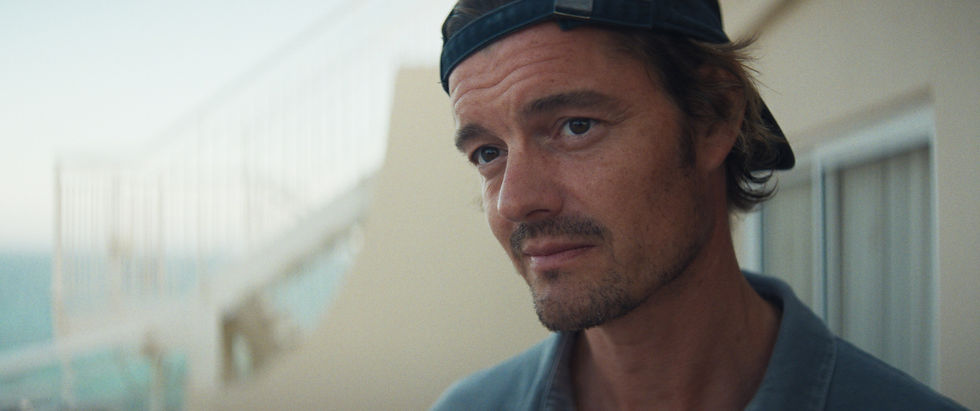Colette
- Kathleen Bondar

- Oct 13, 2018
- 3 min read
Updated: Jan 28, 2019
In Cinemas 01/19
Director: Wash Westmoreland
Screenplay: Richard Glatzer, Wash Westmoreland, Rebecca Lenkiewicz
Cast: Colette -Keira Knightley, Willy -Dominic West, Missy - Denise Gough
“The film makers do not fall into the trap of sidelining Colette’s lesbianism in the scheme of her marriage even though the film centres on Colette’s early life and marriage to the notorious writer Willy, from youth to maturity... This perception is surely a credit to Westmoreland and his late partner Richard Glatzer who scripted and developed Colette over many years together."
"As this is a film about one of France’s greatest writers, perhaps the Francophiles amongst us might question the degree to which the film feels French. Indeed, Knightley is very English in her delivery, and so is Dominic West as Willy. However, this is vastly preferable to employing mock French accents and gestures.”
At the turn of the twentieth century, the naïve and yet precocious Sidonie-Gabrielle Colette is seduced by her father’s friend, the charismatic literary giant Henry Gauthier-Villars, known as Willy. Colette follows her seduction in rural Burgundy, to marriage in Paris. As the wife of the infamous, promiscuous and much-admired Willy, she is central to the world of the literati and artistic demimonde. Under Willy’s direction she becomes one of his ghost writers and pens the series of semi-autobiographical “Claudine” novels which hint at her sexual interest in the same sex. For years she colludes as a ghost-writer, allowing Willy to claim all the fame. But, as she rises to be a theatrical cause-celebre and embarks on a relationship with the lesbian heiress Missy, she decides to claim her right as a bestselling author.
In the role of Colette, Kiera Knightley is a strong presence on screen. At first, it’s difficult to imagine Knightley as anyone but herself, let alone the petite French writer of those familiar black and white photographs. But somehow, Knightley, taller and perhaps less feisty than one imagines Colette, succeeds as her version. At the end of the film, the photographs appear on screen and the wardrobe and make-up of the film can be credited as staying close to the original Colette.
As this is a film about one of France’s greatest writers, perhaps Francophiles might question the degree to which the film feels French. Indeed, Knightley is very English in her delivery, and so is Dominic West as Willy. However, perhaps this is vastly preferable to employing mock French accents and gestures? The nod to Colette’s French heritage occurs when she picks up the pen and writes in French (Westmoreland was blessed by Colette’s estate in using the original manuscripts in the film). The location is French only briefly, when Knightley gazes upon the Seine. Mostly, the film is shot in rural Northamptonshire and Oxfordshire and Budapest. The later goes some way in justifying the claim that Budapest is the “Paris of the East” (as it is the “Brussels of the East” in ITV’s Vanity Fair). In fact, Budapest’s Champs Elysées is known as Andrassy and it has its own Moulin Rouge. The roll of Magyar names in the credits shows the considerable contribution by a Hungarian crew. Knightley is said to be much liked in France, but with all these influences and with a British director and leads, it will be interesting to read the French reviews.
Colette’s attraction to women, particularly her love for Missy, is convincingly performed by Knightley and comes as a refreshing change to the idealised, sexual charge between men and women that commonly dominates our screens. The film makers do not fall into the trap of sidelining Colette’s lesbianism in the scheme of her marriage even though the film centres on Colette’s early life and marriage to the notorious writer Willy, from youth to maturity. West embodies the larger than life persona Willy, who, despite steering Colette’s early adult life and work, comes across as a tremendous entertainer and forgivable philanderer.
Denise Gough is superb as Missy. The sexual and emotional charge between the women, is neither tentative nor salacious. The audacity and the depth of their love resounds on screen. This perception is surely a credit to Westmoreland and his late partner Richard Glatzer who scripted and developed Colette over many years together? A mention must also be made to Rebecca Lenkiewicz (screenwriter of Pawel Pawlikowski’s Ida), whom Westmoreland credits with ‘a much-needed woman’s perspective’.
(Reviewed (BFI Patron's Gala) London Film Festival October 2018)






